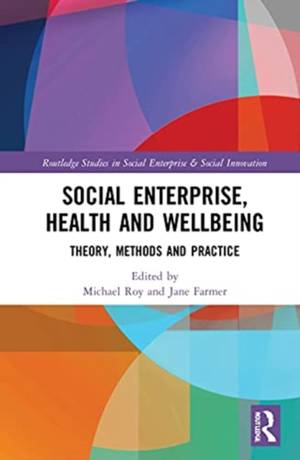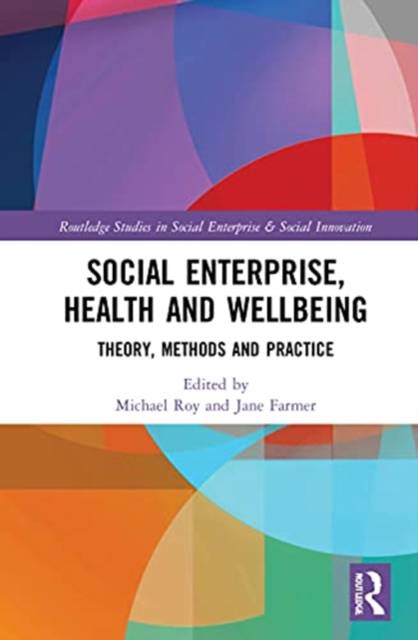
- Afhalen na 1 uur in een winkel met voorraad
- Gratis thuislevering in België vanaf € 30
- Ruim aanbod met 7 miljoen producten
- Afhalen na 1 uur in een winkel met voorraad
- Gratis thuislevering in België vanaf € 30
- Ruim aanbod met 7 miljoen producten
Social Enterprise, Health, and Wellbeing
Theory, Methods, and Practice
Omschrijving
In recent decades, governments have promoted social enterprise as a means to address welfare and tackle disadvantage. Early academic work on social enterprises reflected this development and engaged with their ability to deliver and create jobs, work towards remedial environmental goals, and address a range of societal challenges. More recently, researchers have started to investigate the broader potential of social enterprise for the wellbeing of people and the planet.
In this context, this book aims to answer the question: In what ways can social enterprises improve the health and wellbeing of individuals and communities? The chapters in this edited collection take different perspectives on assessing how social enterprises address disadvantage and deliver health and wellbeing impacts. Drawing on evidence from international research studies, Social Enterprise, Health, and Wellbeing: Theory, Methods, and Practice presents the 'first wave' of innovative research on this topic and provides a platform of evidence to inspire the next generation of scholarly and policy interest.
Drawing on the cutting edge of interdisciplinary research in the field, this book will be of interest to researchers, academics, policymakers, and students in the fields of entrepreneurship, public and social policy, community development, public health, human geography, and urban planning.
Specificaties
Betrokkenen
- Uitgeverij:
Inhoud
- Aantal bladzijden:
- 298
- Taal:
- Engels
- Reeks:
Eigenschappen
- Productcode (EAN):
- 9780367647292
- Verschijningsdatum:
- 27/08/2021
- Uitvoering:
- Hardcover
- Formaat:
- Genaaid
- Afmetingen:
- 152 mm x 229 mm
- Gewicht:
- 589 g

Alleen bij Standaard Boekhandel
Beoordelingen
We publiceren alleen reviews die voldoen aan de voorwaarden voor reviews. Bekijk onze voorwaarden voor reviews.










